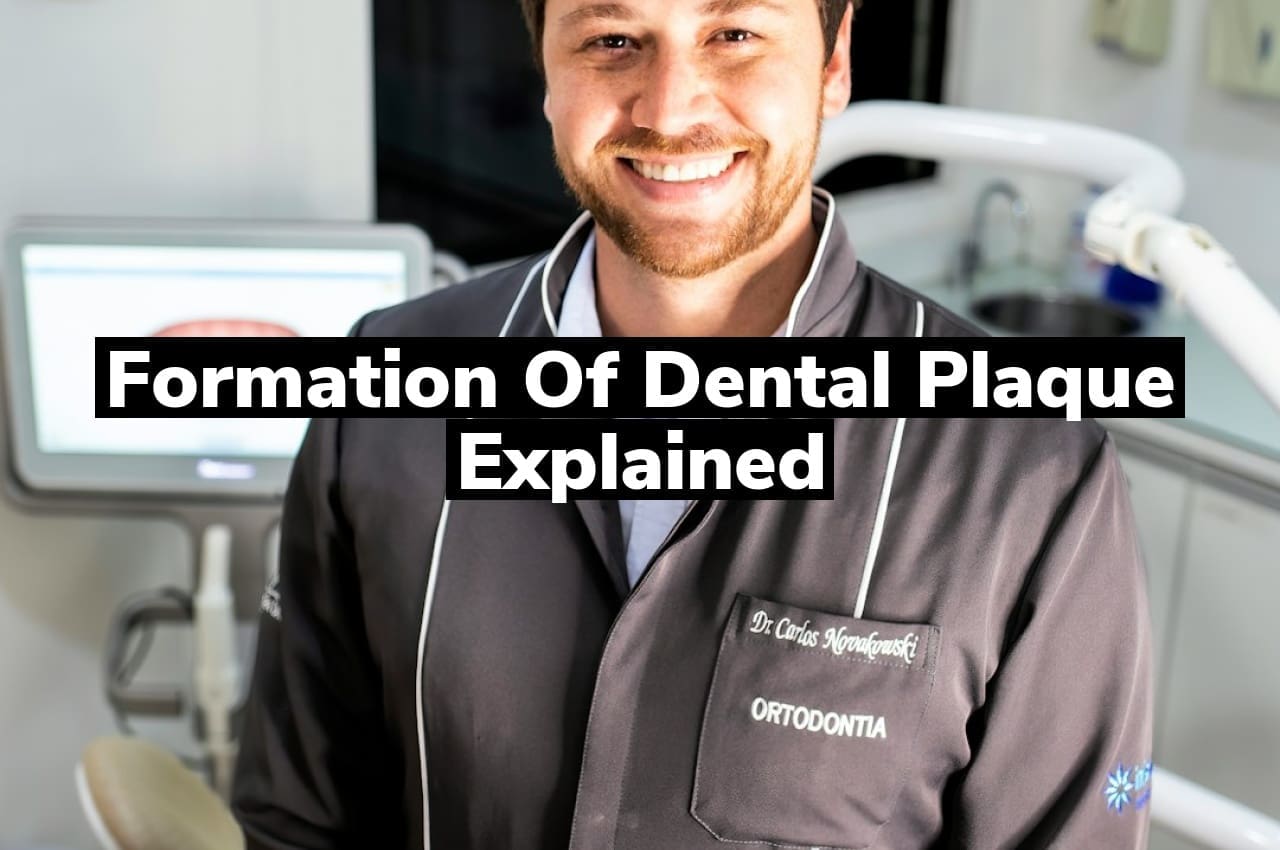Have you ever wondered how dental plaque forms on your teeth? Dental plaque is a sticky film of bacteria that accumulates on the surfaces of teeth, primarily due to the combination of food particles, saliva, and bacteria. This process can lead to various dental issues if not managed properly.
Initial Bacterial Adhesion to Teeth
The formation of dental plaque begins with the initial adhesion of bacteria to the tooth surface. This process is fundamental in dental health, as it marks the start of plaque buildup that can lead to various dental issues if not properly managed. Bacteria present in the mouth adhere to the teeth by forming a sticky layer known as a biofilm. This biofilm serves as a protective environment for the bacteria, allowing them to thrive and multiply on the surfaces of teeth. The composition of saliva, presence of food particles, and individual oral hygiene habits all play significant roles in how effectively these bacteria can adhere and form plaque.
Understanding this initial step in plaque formation underscores The Importance of Regular Teeth Cleaning. Regular dental cleanings help disrupt and remove the biofilm before it can mature into hardened plaque, which is much more difficult to remove and can lead to tooth decay and gum disease. The interaction between bacteria and the oral environment is complex, and the initial adhesion is just the beginning of what can become a series of dental health challenges if not addressed in a timely manner.
Biofilm Development and Maturation
The formation of dental plaque is a complex process that begins with the development of a biofilm on the surface of the teeth. This biofilm is essentially a community of bacteria that adheres to the teeth’s surface, protected by a slimy matrix they produce. Initially, the biofilm is relatively harmless and easy to remove. However, as it matures, it becomes more complex and resistant to removal. The maturation of the biofilm involves the accumulation of various species of bacteria, each playing a role in the ecosystem of the dental plaque. Over time, these bacteria interact and contribute to the structural integrity and resilience of the plaque, making it more challenging to eliminate.
As the biofilm matures, it undergoes several changes in its composition and properties. The bacteria within the biofilm communicate through a process known as quorum sensing, which allows them to coordinate their activities and contribute to the biofilm’s growth and defense mechanisms. This maturation process is crucial for the biofilm’s survival, as it enhances its ability to resist mechanical removal and the effects of antimicrobial agents. The mature biofilm can lead to various dental issues if not adequately managed, emphasizing the importance of regular dental hygiene practices. Get Your Teeth Cleaned in Arlington Heights to help manage the development and maturation of dental plaque effectively.
Role of Saliva in Plaque Formation
Saliva plays a crucial role in the formation of dental plaque, a sticky film composed mainly of bacteria that adheres to teeth surfaces. While saliva naturally helps in maintaining oral hygiene by washing away food particles and neutralizing acids produced by bacteria, it also contributes to plaque formation. Saliva contains proteins and minerals that bacteria in the mouth use to adhere to the teeth surfaces, creating a biofilm. This process is a natural part of the oral ecosystem, highlighting the dual role of saliva in both protecting against and contributing to dental plaque formation.
Dietary Sugars Impact on Plaque Growth
The relationship between dietary sugars and the growth of dental plaque is a topic of significant importance in understanding oral health. When we consume foods high in sugars, these sugars interact with the bacteria present in our mouths. This interaction leads to the production of acids, which can contribute to the formation and proliferation of dental plaque. Plaque, a sticky film that adheres to teeth and gums, can lead to various dental issues if not properly managed. The process is a natural one, where the bacteria that live in our mouths utilize these sugars as a form of energy, producing acid as a byproduct. This acid can then erode the tooth’s surface, potentially leading to cavities and other dental complications. Understanding this connection highlights the importance of managing sugar intake and maintaining oral hygiene practices to support overall dental health. For those seeking professional dental care, Arlington Heights Dentist at Arlington Smiles Dental Studio offers a range of services to support your oral health needs.
Consequences of Untreated Dental Plaque
When dental plaque is not addressed, it can lead to a series of oral health issues that affect not only the teeth but also the gums and overall well-being. Initially, plaque buildup can cause tooth decay and cavities, as the bacteria in plaque produce acids that erode tooth enamel. If left untreated, this condition can progress to more serious problems such as gum disease, including gingivitis and periodontitis. These gum diseases can lead to symptoms such as swollen, bleeding gums, and if severe, may result in tooth loss. Furthermore, research has shown a link between untreated oral health conditions like those caused by dental plaque and broader health issues, including heart disease and diabetes, highlighting the importance of maintaining oral hygiene.
Conclusion
Understanding the formation of dental plaque is crucial for maintaining oral health. For more insights, call us at 847-392-2141 or read our reviews on Google Maps.

